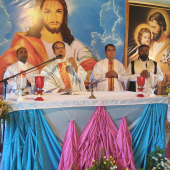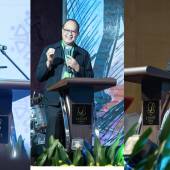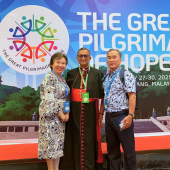Foreign missionaries in Thailand find ways to be effective in mission
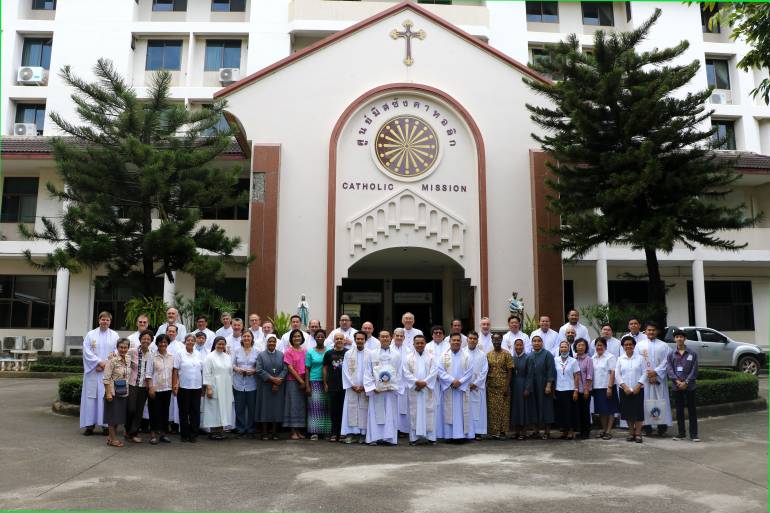
Foreign missionaries working in Thailand gathered in Chiang Mai, to share their experience and be more effective in the Thai Church.
Father Paul Trairong Multree, the national director of the Pontifical Mission Society (PMS) in Thailand invited foreign missionaries working in the country to a three-day gathering in Chiang Mai, September 28 to 30.
The program was held at the Chiang Mai Diocese Center.
As many as 53 nuns and priests could strengthen their relationships, share experiences, and express their vision for the future. Among the participants, almost all foreigners, there was a great variety, they came from Europe, Africa, Asia, and South America. Some have been working in Thailand for many years, and some have just arrived in the Kingdom.
The participants also celebrated the 400th anniversary of the Congregation of the Evangelization of the Peoples (now known as the Dicastery [department] for Evangelization). On June 22, 1622, Pope Gregory XV established it to promote missionary work around the world.
In preparation for World Missionary Day, Father Multree, a member of the Thai Missionary Society, organized a meeting of all the missionaries working in the country.
The aim of the meeting, said the priest, was to allow the missionaries to get to know each other and share their experiences and missionary strategies.
The Thai church is small and has several Catholics. Only 4% of the population is baptized. The missionaries have had a great role in the evangelization of Thailand, but there is still room for improvement and growth.
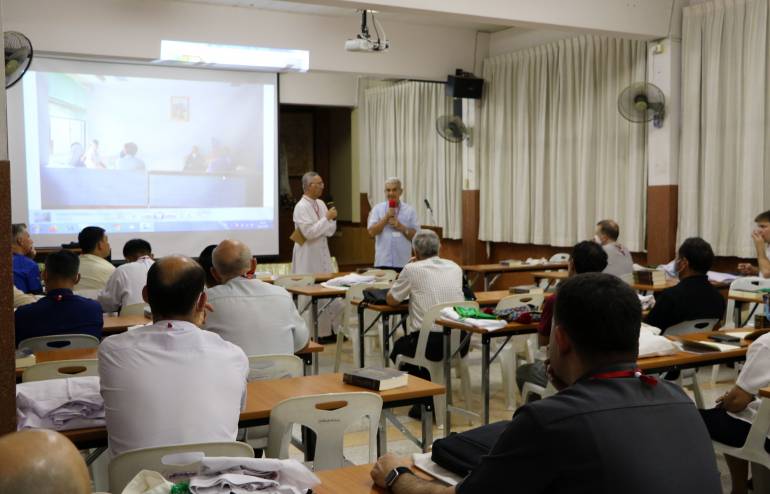
In his opening speech, Bishop Francis Xavier Vira Arpondratana of Chiang Mai, said, "Thinking about the missionary development of the church in Thailand, I am always impressed by the foreign missionaries' work. They reach the remotest and impervious areas of the country to bring the Gospel of Jesus. It was a great achievement and an example of dedication and unwavering commitment."
The local church in Thailand is quite strong and well organized. It serves a small number of Catholics with competence, but the growth rate is weak and inconsistent. The reasons have to be found in the Buddhist religious background of the Thai people and their culture, almost impermeable to the Gospel. Such a reality is a challenge for participants of the meeting: is there any way to increase the number of faithful in the Thai church?
At the end of the day, Jesus Christ sent us to "baptize the people." "Are we able to find new missionary strategies to reach more people? Is the local church, which was founded almost 400 years ago, not able to face the missionary challenge?" the prelate asked.
At the end of the day, the Thai clergy could fill the cultural gap and develop more effective missionary action.
In one word: "Are missionaries still needed in Thailand? Is their presence still necessary to make the local church stronger?"
Some answers came from sharing. The foreign missionary congregations are still faithful to their charisma and go out of their comfort zones to work with the border reality of society. They still work in the slums of the Thai cities or reach the remote mountainous areas of the Kingdom to visit the people, celebrate the Masses in the villages, and teach catechism for baptism.
They attend Buddhist religious universities to deepen their knowledge of Buddhism and improve inter-religious dialogue activities.
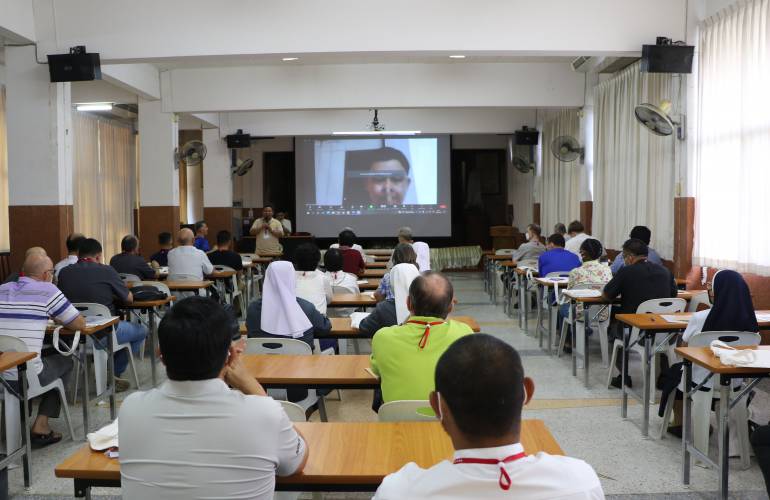
At the meeting, Italian Father Adriano Pelosin, a member of the Pontifical Institute for Foreign Missions and Superior General of the Thai Missionary Society, said the local church needs help to become a missionary church.
"Thai Missionary Society, which counts 20 members, has reminded the Thai dioceses that the Church has no meaning if it forgets its missionary vocation. Our effort to form the lay people with the Parish Missionary Group to instill in them a missionary sensibility is not fruitless," he said.
"I believe that the Thai church needs foreign missionaries to evangelize the many places that the Thai local clergy are not able to reach," Pelosin added.
Giving some insights about a missionary strategy following the signs of time, he said, "This meeting can give direction to our missionary effort. I believe that we should develop a more spiritual approach to evangelization. We have to keep our people in touch with Jesus and his word. The spiritual dimension of proclamation is essential, all other strategies will follow."
Bishop Arpondratana thanked the foreign missionaries, saying they are needed in the country.
"I host the meeting of the missionaries in Thailand," he said, "because a gathering of so many engaged and motivated men and women can be an example for my young clergy and can stimulate them to have a deeper missionary mentality."
On the other hand, the bishop has some expectations of the missionaries gathered in his diocese: "I would like to see them more engaged in youth education. The youth are the future of the church, and in Chiang Mai, the population is still very young.
"In Thailand, the easiest way to get in touch with them is through Catholic schools. But this is not the only field where foreign missionaries can help the local church because they are extremely competent and committed to working with marginalized people and the poor. They dare to go where the local clergy are not ready to go, and their great experience makes them more creative than our priests," he added.
What emerged from the last day's discussion was that the Thai Church should not be worried about increasing the number of Catholics but instead become more and more a sign of mercy, solidarity, and a place where the Thai people are welcomed and find peace. - Domenico Rodighiero
Radio Veritas Asia (RVA), a media platform of the Catholic Church, aims to share Christ. RVA started in 1969 as a continental Catholic radio station to serve Asian countries in their respective local language, thus earning the tag “the Voice of Asian Christianity.” Responding to the emerging context, RVA embraced media platforms to connect with the global Asian audience via its 21 language websites and various social media platforms.









